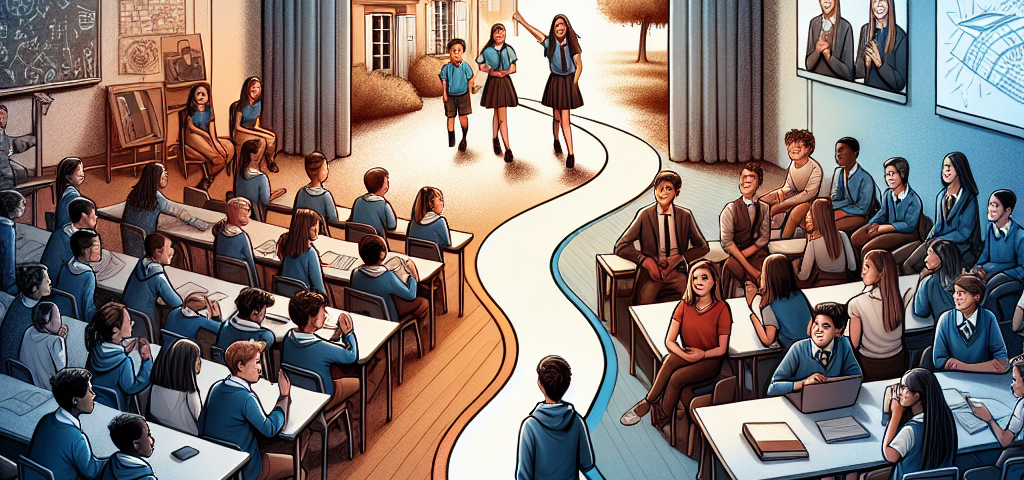
The Importance of Arts Education in French Secondary Schools
May 31, 2025
Educational Exchange Programs: Bridging Cultures in French Secondary Schools
May 31, 2025
In the dynamic environment of French secondary schools, student councils represent a significant avenue for youth participation and leadership development. These councils not only serve as a bridge between students and faculty but also play a crucial role in the holistic development of students. From fostering essential life skills to influencing school policies, the impact of student councils extends beyond the classroom, shaping future leaders.
The Structure and Purpose of Student Councils
In France, student councils, known as conseils de la vie scolaire, typically consist of elected representatives from various classes. These councils are designed to give students a voice in school governance. Their main objectives include:
- Representation: Acting as a liaison between the student body and the school administration, ensuring that students’ views and concerns are heard.
- Decision-Making: Participating in discussions on school policies, events, and initiatives, thereby influencing decisions that directly affect their school experience.
- Civic Engagement: Encouraging students to take responsibility for their educational environment and develop a sense of civic duty.
Enhancing Leadership Skills
One of the most significant benefits of participating in a student council is the opportunity for personal growth. Students engage in activities that promote various leadership skills, such as:
- Public Speaking: Regularly addressing peers during meetings helps build confidence and enhances communication skills.
- Teamwork: Collaborating with fellow council members fosters a sense of camaraderie and teaches students how to work effectively in teams.
- Problem-Solving: Addressing student issues requires innovative thinking, teaching members to approach challenges with creativity and determination.
These skills not only prepare students for future college and career endeavors but also instill a sense of agency and responsibility, empowering them to become active citizens in society.
Fostering a Sense of Community
Student councils also play a vital role in promoting a sense of belonging and community within schools. By organizing events, initiatives, and activities, councils create an inclusive environment that encourages student engagement. Examples include:
- Cultural Events: Celebrating diversity through multicultural days, allowing students to share and learn about each other’s backgrounds.
- Fundraisers and Charitable Initiatives: Organizing events that raise money for local charities cultivates a spirit of compassion and social responsibility.
- School Spirit Activities: Organizing sports events or themed weeks helps build a strong school culture, bringing students together and enhancing school pride.
Through these initiatives, student councils help create a vibrant school atmosphere where every student feels valued and connected.
Influencing School Policy
The insights and feedback gathered by student councils can lead to meaningful changes in school policies. When students voice their opinions on matters such as dress codes, lunch menus, or mental health resources, they actively participate in shaping the educational environment. This collaboration often leads to innovative solutions that address the unique needs and concerns of the student body.
Moreover, involving students in decision-making processes nurtures a culture of transparency and accountability, encouraging collaborative governance between students and faculty.
Preparing for Future Challenges
In the context of a rapidly changing world, the skills garnered from student council participation prepare young people for the challenges they will face as adults. The ability to advocate for oneself and others, engage in constructive dialogue, and navigate complex social dynamics are invaluable competencies.
By fostering such skills within the supportive framework of a student council, French secondary schools are not only shaping effective leaders but also responsible citizens who are capable of creating positive change in their communities.
Conclusion
As student councils continue to evolve, their impact on French secondary schools remains profound. By empowering students to step into leadership roles, these councils enrich the educational experience and cultivate the next generation of leaders. The capacity to influence school culture, advocate for peers, and work as collaborative team members lays the foundation for a more engaged, responsible, and proactive citizenry. Ultimately, through participation in student councils, students transition from passive learners to active leaders, poised to make a difference in their schools and beyond.

